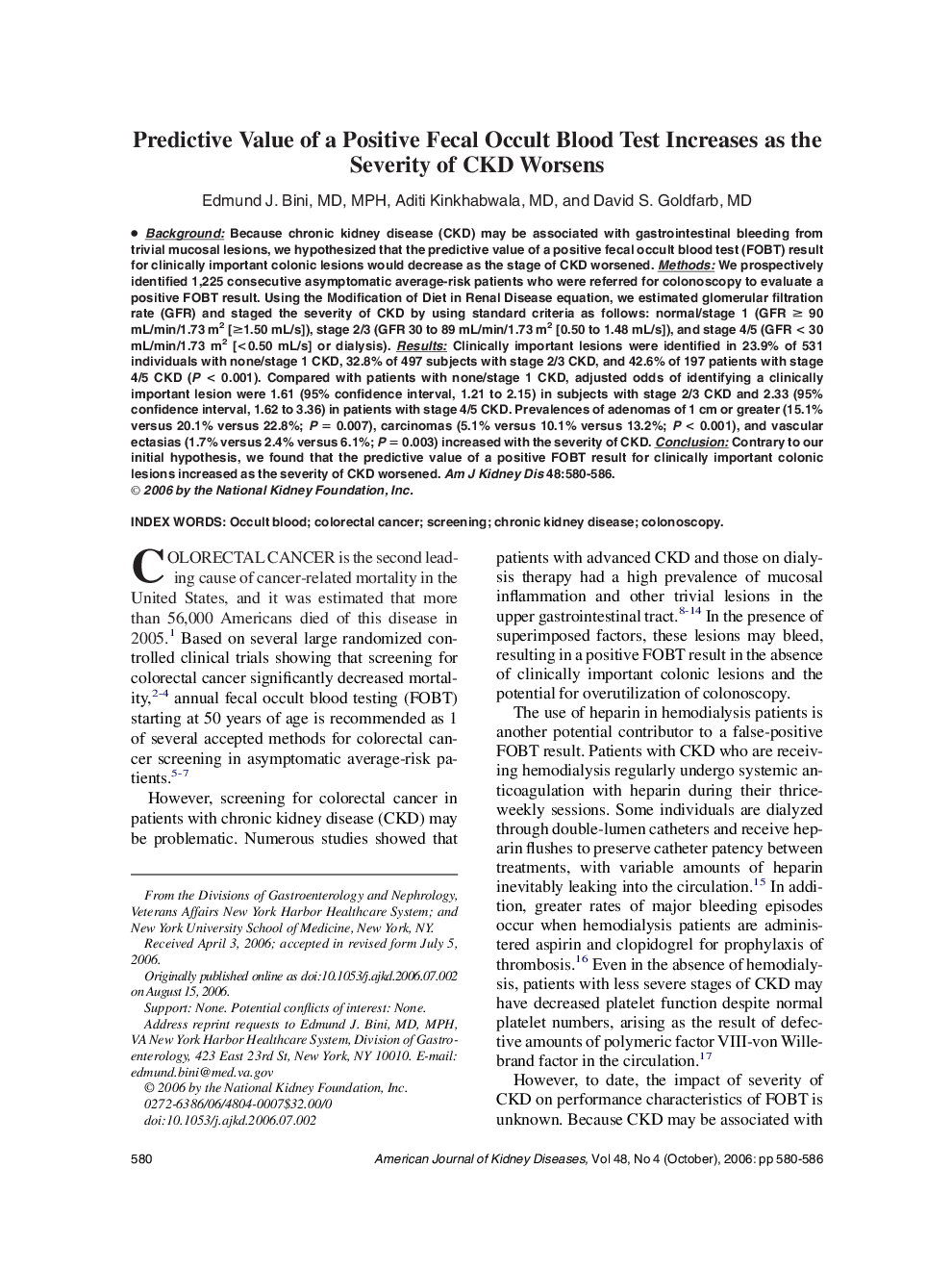| Article ID | Journal | Published Year | Pages | File Type |
|---|---|---|---|---|
| 3851687 | American Journal of Kidney Diseases | 2006 | 7 Pages |
Abstract
Background: Because chronic kidney disease (CKD) may be associated with gastrointestinal bleeding from trivial mucosal lesions, we hypothesized that the predictive value of a positive fecal occult blood test (FOBT) result for clinically important colonic lesions would decrease as the stage of CKD worsened. Methods: We prospectively identified 1,225 consecutive asymptomatic average-risk patients who were referred for colonoscopy to evaluate a positive FOBT result. Using the Modification of Diet in Renal Disease equation, we estimated glomerular filtration rate (GFR) and staged the severity of CKD by using standard criteria as follows: normal/stage 1 (GFR ⥠90 mL/min/1.73 m2 [â¥1.50 mL/s]), stage 2/3 (GFR 30 to 89 mL/min/1.73 m2 [0.50 to 1.48 mL/s]), and stage 4/5 (GFR < 30 mL/min/1.73 m2 [<0.50 mL/s] or dialysis). Results: Clinically important lesions were identified in 23.9% of 531 individuals with none/stage 1 CKD, 32.8% of 497 subjects with stage 2/3 CKD, and 42.6% of 197 patients with stage 4/5 CKD (P < 0.001). Compared with patients with none/stage 1 CKD, adjusted odds of identifying a clinically important lesion were 1.61 (95% confidence interval, 1.21 to 2.15) in subjects with stage 2/3 CKD and 2.33 (95% confidence interval, 1.62 to 3.36) in patients with stage 4/5 CKD. Prevalences of adenomas of 1 cm or greater (15.1% versus 20.1% versus 22.8%; P = 0.007), carcinomas (5.1% versus 10.1% versus 13.2%; P < 0.001), and vascular ectasias (1.7% versus 2.4% versus 6.1%; P = 0.003) increased with the severity of CKD. Conclusion: Contrary to our initial hypothesis, we found that the predictive value of a positive FOBT result for clinically important colonic lesions increased as the severity of CKD worsened.
Related Topics
Health Sciences
Medicine and Dentistry
Nephrology
Authors
Edmund J. MD, MPH, Aditi MD, David S. MD,
